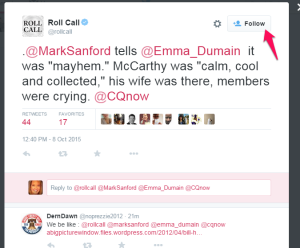More and more startups are springing up across almost all industries every year as the internet continues to democratize the business environment.
But as the number of startups increases, the more difficult it becomes for aspiring entrepreneurs to find suitable investors for their business ideas. Venture Capitalists (VCs) have available to them an almost infinite supply of startups to choose from and only limited capital to invest.
Few of the startups stand the test of time. As a matter of fact, 10% of all startups fail during their first year in business, whereas 90% of all startups are destined to fail eventually. One of the main reasons startups fail is that an astounding 29% of the startups fail because they were unable to raise the required capital and ran out of cash.
Just like any business, startups need money. They have to rent offices, hire employees, and continue their operations, but with limited customers, startup founders often struggle financially. And this is when a venture capitalist comes in.
VCs are a type of investor that searches for the best startup to invest money in. When assessing startups, they consider various factors to determine which one has the highest chances for profitability. Obviously, there are a vast number of reasons that a VC might be interested in your venture, but we have prioritized the main ones below:
Scalability of the Market
A venture capitalist wants to know whether the market size is big enough to sustain your product/service. This indicates a business’ potential to make continued profits in the long run.
It’s common for startups to focus on niche markets initially, as this allows them to target and tailor their offering more specifically. But VCs want to know how scalable your business can be and how you can cater to the needs of different markets.
If there is no market demand for the product/service, then the startup is going to suffer when trying to sell its offerings. But, if the startup offers a high-demand product and a strong product-market fit, then with the right investment the startup’s growth could be promising.
Characteristics of Owners and Management Team
Many VCs say that the character of the startup founders who manage the startup is often the decisive factor. No matter how great a business idea is, the startup is bound to struggle if the owner and the management team are not in sync.
The whole team needs to be passionate about the startup idea and be fully committed to growing the business. VCs are interested in getting involved with a business that has a team that is reliable, trustworthy, and interested in establishing a long-term business relationship.
It also means that the work ethic and company culture play a crucial role when it comes to gaining investment. If the team doesn’t have a strong synergy, the startup will most likely fail. This places a lot of responsibility on the startup founder to motivate employees whilst also being well-organized and risk-taking. Startup life can be tough, so a good organization is necessary for sustainable growth.
Competency of Leaders and Employees
A company that’s just starting out should have qualified leaders as well as equally skilled employees. The previous experience of a CEO and those in business-critical roles have a huge role in determining whether venture capitalists see a startup as attractive or not.
The business environment is highly competitive and startups can easily get chewed out by corporations or scale-ups. So, if startups want a VC investment, they need to be on top of their game.
Inexperienced leaders aren’t a selling point for any company, and investors almost always avoid this type of risky investment. If you’re an inexperienced startup founder, you can mitigate this factor by surrounding yourself with an experienced team that can help you build your business from the ground up.
Uniqueness of Product and Service
A unique product or service will always sell better providing there is sufficient demand on the market. The growth potential is higher if your company can offer novelty and appeal.
A large number of businesses sell the same type of products or services, and for startups, this is often the reason they don’t take off. This also creates a higher degree of competition, and therefore a higher level of risk for startups selling generic products, and venture capitalists will note that.
If your startup has no close competitors, the chances for success are significantly higher. This makes uniqueness fundamental, especially for new firms with insufficient funds.
Rather than replicating your competitor’s products, you can analyze their businesses and find imperfections in their work. You can then take advantage of that weakness, and develop something better. Potential investors would be more interested in these creative solutions.
VC match with Business Strategy
Many VCs invest within specific business niches, in which they themselves are experts and may have had successful exits in the past. As such, a startup has to be a good fit for the specific investor, and the founder should tailor their pitch to present all the pros of the business in a way that is specific to the individual VC.
Some venture capitalists are interested in IT startups, while others might be interested in green technologies. You have to find an investor from your industry because your business strategy has to fit into their business strategy.
There are even startup accelerators that are specific to startups within specific industries, and these often connect startup founders with investors. If you do not know how to find a venture capitalist for your business, you should start searching there.
These types of accelerators typically have solid contacts for potential investors. If going through such programs can increase your odds of gaining funding, you should not miss the opportunity!
Evaluate Metrics and Statistics
Do not expect results overnight. Finding the right investor is a process that requires time and patience. Venture capitalists always want to inspect a potential startup, and that process might have several steps.
Venture capitalists will carefully evaluate all available metrics, analyzing evidence of progress. But not all venture capitalists use the same metrics and statistics. They have different ways of calculating a startup’s likelihood of success.
This means that you should be constantly collecting data about the performance of your startup – you never know which sets of data are going to be important to a VC. This practice also allows you to monitor the success of your own startup, something VCs will also want to know. If your performance is decreasing, why? Be prepared to answer these questions with the right data.
The Strength of your Business Plan
You must be able to explain why you need their investment. Venture capitalists will ask for a detailed plan of what you intend to do with their money, so it’s wise to get ahead of these questions by being as detailed as possible with clear explanations.
You will have to explain what area of your business needs further development and additional funds. If you want to fund the development of new products, explain how these new products will allow you to expand your business operation and reach new customers, and the forecasted increase in profit that this will accrue.
It can also include any other aspect of your business, but you have to prove that the investment will go in the right direction. Venture capitalists earn from the fund’s return, and they obviously look for more profit opportunities.
Green Technology
If your startup idea is valuable to the community or humanity in general, it might have a better chance of gaining investment from sustainably-led VCs. Some VCs specifically cater towards startups that are sustainable and provide environmental benefits through their work.
But beyond that, green technologies often take priority these days, as there is significant national and international legislation and regulation that supports the development of these industries.
If your startup idea plans on saving the world, there are many VCs who would love to support it, whether altruistically or not. That provides a clear advantage compared with startups that cannot justify their startups’ operations on environmental grounds.
There are also green accelerators that support sustainably-led startups and match them with CSR-conscious investors. So, it is always a good idea to go green to gain more investment opportunities.
Conclusion
Getting an investor interested in your startup is no joke. It takes serious commitment and a great business strategy to take off your new venture. So, it’s a smart idea to understand what venture capitalists look for while making investment decisions.
If you do not want to be denied by VCs, start by developing a unique product idea, preparing an interesting presentation, understanding the investor’s strategy, and demonstrating the scalability of your business idea. Being passionate about your startup is a must to show commitment and ensure your competency. Lastly, going green won’t hurt your investment prospects or nature!
Business & Finance Articles on Business 2 Community(32)




